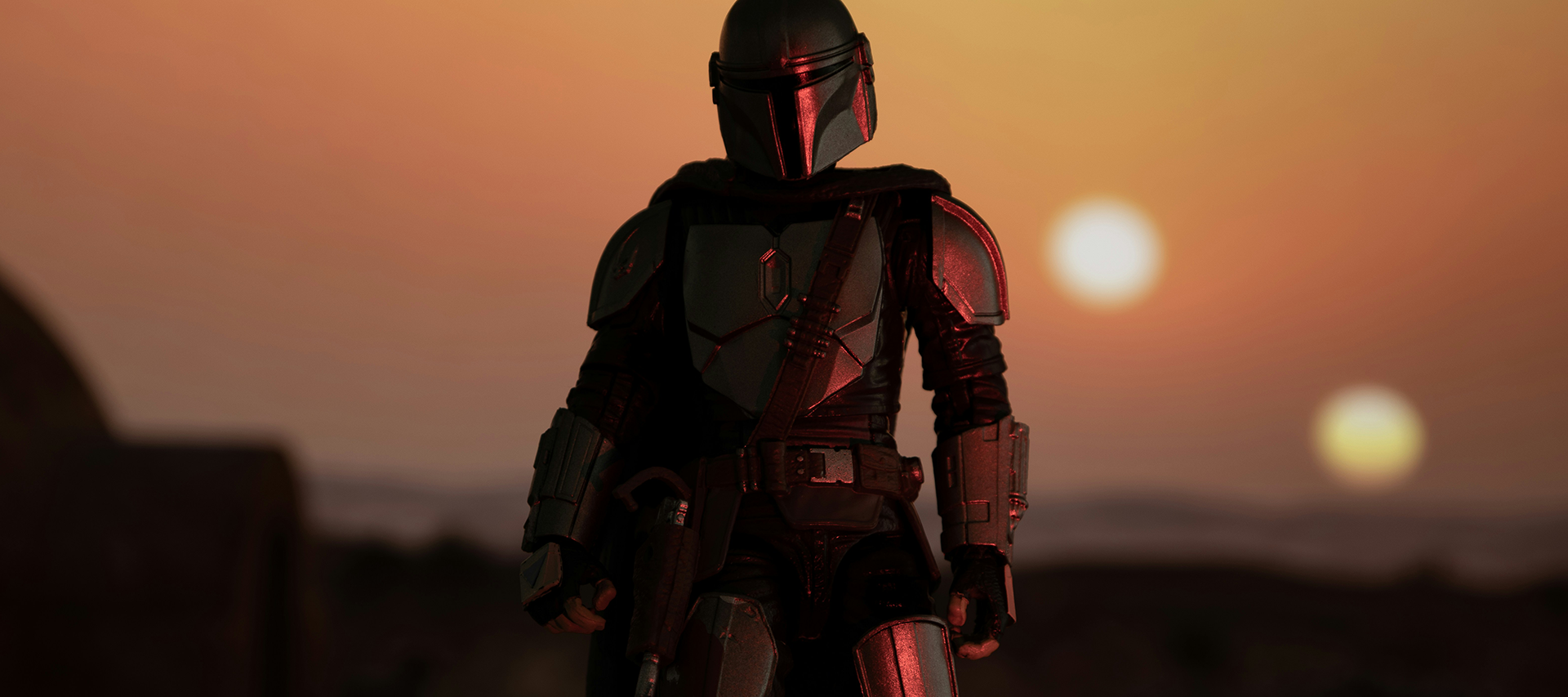Star Wars for Social Justice: 4 Messaging Hooks for May the 4th

by The Opportunity Agenda
“Star Wars” stands as a monumental force in global pop culture, captivating audiences with its sprawling universe, complex characters, and epic narratives. Since its debut in 1977, its enduring appeal and widespread popularity make the franchise a powerful tool for engaging audiences in deeper conversations beyond the realm of entertainment.
By leveraging the rich themes and allegories woven throughout the Star Wars saga – such as personal bonds, the resilience of the oppressed, the importance of diversity and inclusion, and the fight against tyranny – advocates and educators can effectively use the franchise to shift narratives and raise awareness about social justice issues.
1. “This is the Way” to Caregiving
In “The Mandalorian,” the relationship between Din Djarin (the Mandalorian) and Grogu (Baby Yoda) evolves into a profound father-son dynamic. Din, initially a lone bounty hunter, takes on the unexpected role of protector and caregiver for Grogu. Their bond deepens over the series, showcasing moments of care, sacrifice, and paternal affection, which redefine Din’s identity and priorities.
This relationship not only lifts up the importance of caregiving but also exemplifies the concept of chosen family and challenges traditional gender roles in caregiving. By leveraging these themes in “The Mandalorian,” you can reinforce the narrative that caregiving is a universal and heroic act and make the case for inclusive paid leave policies that allow caregivers, regardless of gender, to provide necessary care without worrying about making ends meet.
2. More than “One Way Out”
In “Andor,” a prison rebellion unfolds in a high-security facility where the incarcerated heroes of our story, including protagonist Cassian Andor, are unknowingly condemned to build parts for the oppressive Empire, under the guise that they are earning points towards their release. However, once Andor and his incarcerated peers realize that there is no release, they organize and fight back. Their courageous uprising, fueled by their desire for freedom and justice, challenges not only their immediate captors but also the broader systemic injustice underpinning their indefinite incarceration.
This storyline serves as a poignant critique of the exploitative and corrupt criminal legal systems that perpetuate racial and economic injustice in the United States, encapsulating themes of resistance, solidarity, and the human spirit’s resilience. By using the stark, oppressive environment shown in “Andor” as a starting point, you can discuss real-world prison conditions, including overcrowding, lack of medical care, and the psychological impacts of long-term confinement. Moreover, addressing how the incarcerated in “Andor” are subjected to an opaque system with little hope of release can open conversations around issues like mandatory sentencing, cash bail systems, and racial disparities in the justice system.
3. The Force is for Everyone
In the Star Wars fandom, misogyny has manifested in various troubling ways. For instance, female characters and the actresses who portray them, such as Daisy Ridley (Rey) and Kelly Marie Tran (Rose Tico), have faced intense online harassment. More recently, popular YouTuber, Star Wars Theory, rightly came under fire for agreeing with a comment suggesting that women are less likely to watch “Star Wars” or care deeply about its lore. This statement sparked significant backlash and discussion about gendered gatekeeping often present in fandom communities.
While online harassment often stems from a vocal subset of fandoms that resist strong female leads in what they perceive as a traditionally male-oriented genre, the impact on making fandom communities feel safe for everyone is significant. Such incidents underscore the need for a nuanced discussion about inclusivity and representation within fan communities and Hollywood.
By engaging online discussions in support of strong, diverse female characters in media, we can challenge entrenched stereotypes about who holds power to change the world and encourage expanded representation of women in prominent roles across all genres. Such conversations can also act as a springboard to address broader societal issues, such as gender inequality, discrimination, and the pervasive problem of violence against women. By examining these depictions in popular media, we can contribute to shaping a more equitable and just society, both on and off the screen.
4. Rebellions Are Built on Hope
“Star Wars” vividly portrays the rise of fascism through the transformation of the democratic Galactic Republic into the autocratic Galactic Empire. This shift highlights key elements of fascist ideology, such as the concentration of power, suppression of dissent, and the utilization of militaristic and fear-based tactics to maintain control.
However, the heart of “Star Wars” champions the power of rebellion to restore democratic governance. Their struggles underscore the theme that collective resistance is essential for overthrowing tyrannical systems and reinstating democratic ideals. This duality between oppressive control and the fight for freedom serves as a central theme throughout the series, providing a compelling framework for discussions on the dynamics between fascism and democracy. Use their struggles to discuss the importance of civic engagement, defending our freedoms, and resisting the elements of tyranny at every turn.
When you really dig into the Star Wars saga, you’ll find a diverse cast of characters and narratives that can speak to issues in our real world. Similar to how the force binds all living beings in the Star Wars galaxy, every one of us is deeply connected. Our actions impact one another. And our stories each hold power to spark resistance. It’s the collective power of telling our stories that moves narrative. May the force be with you as you speak your truth.


